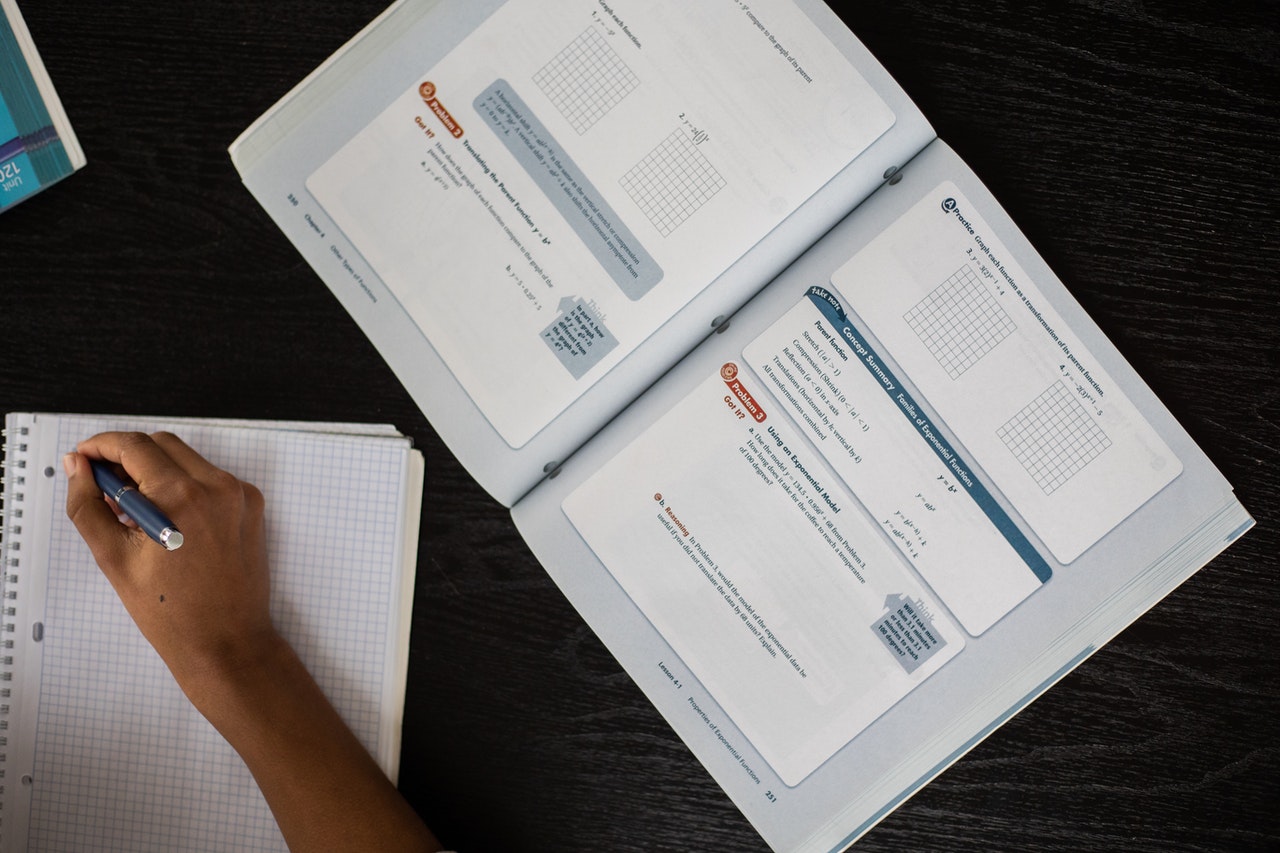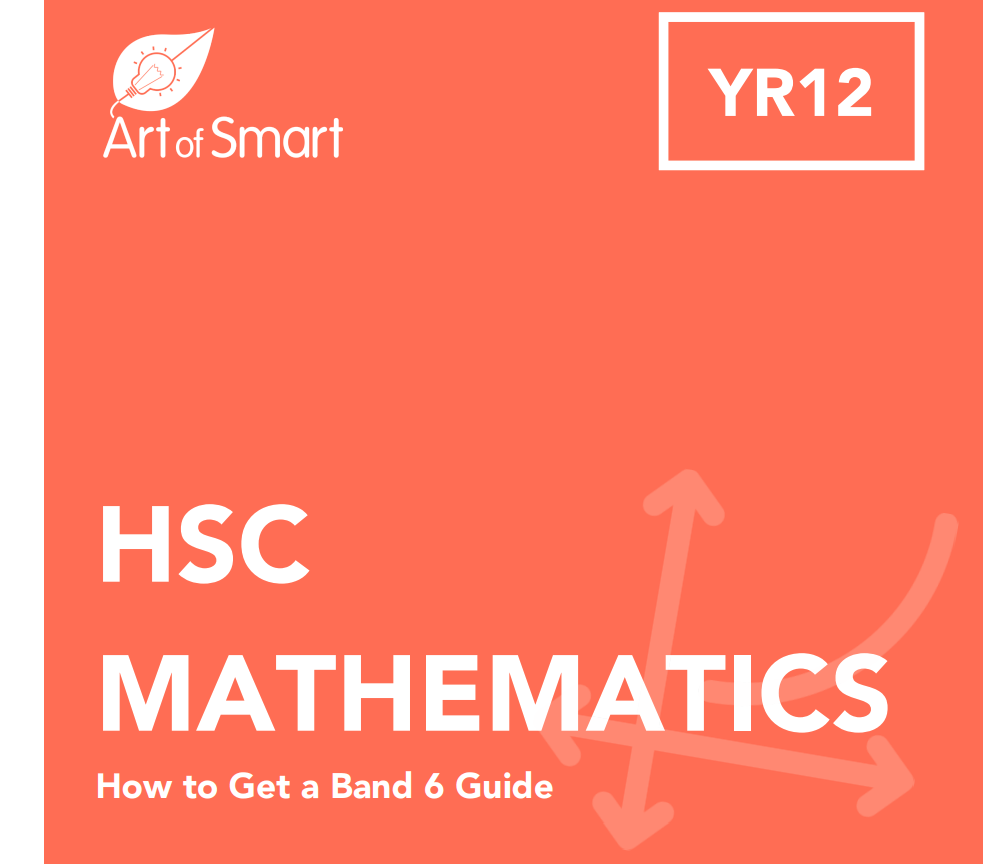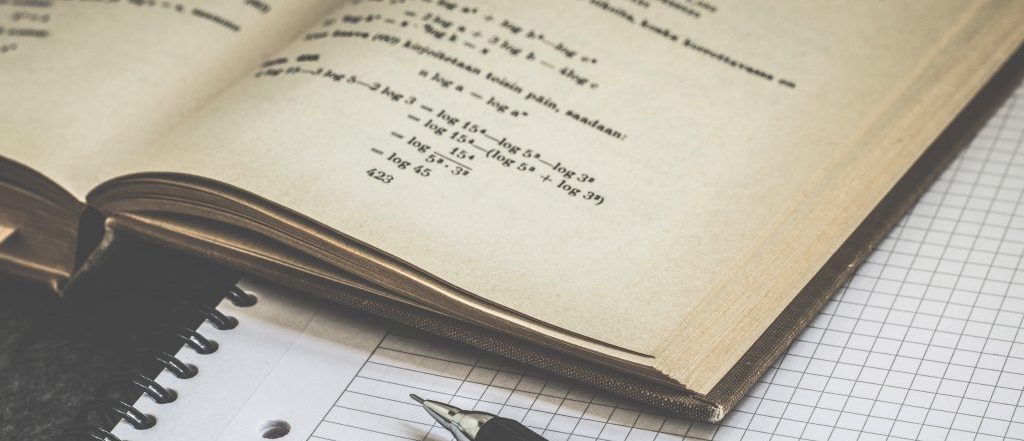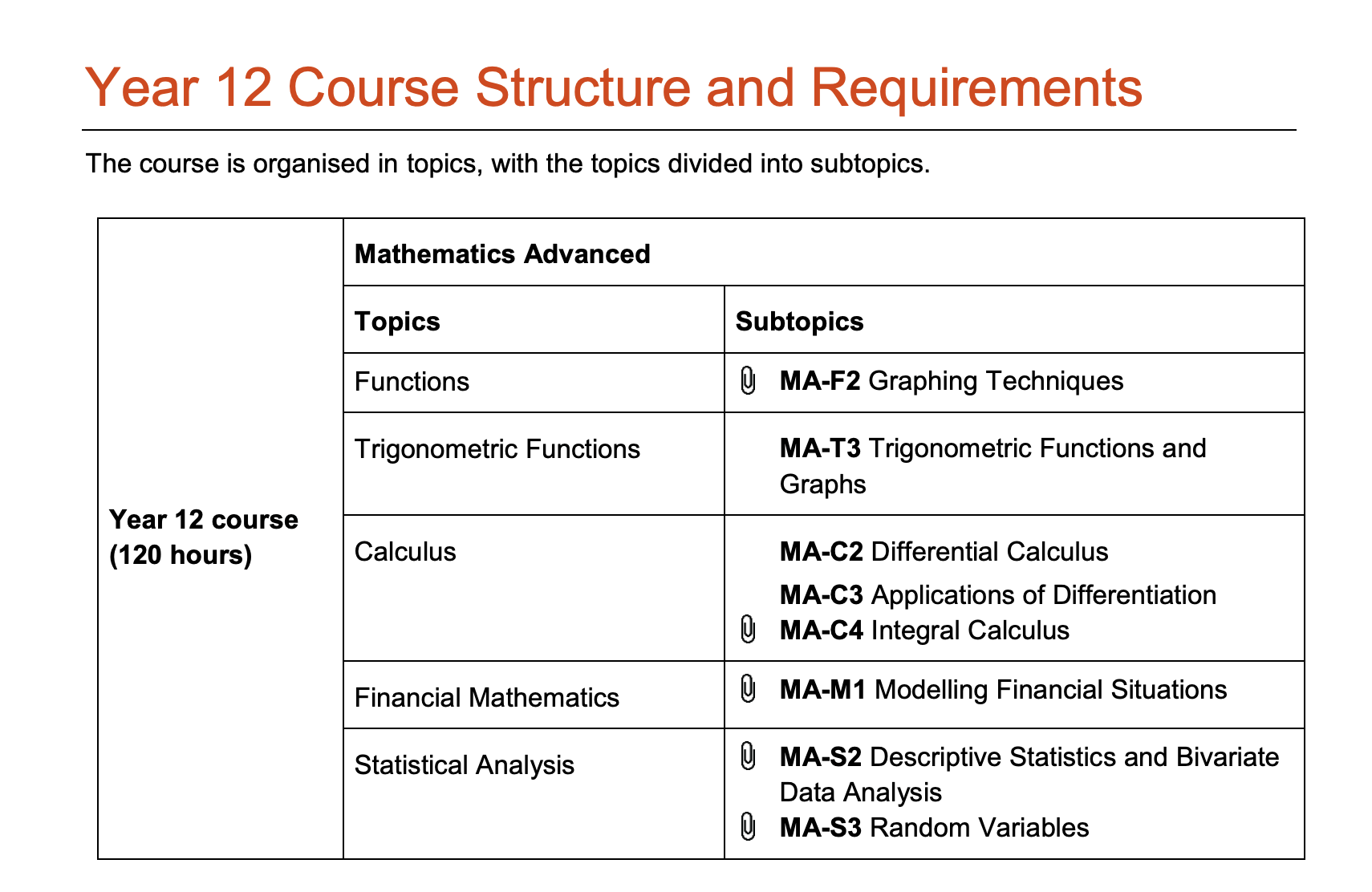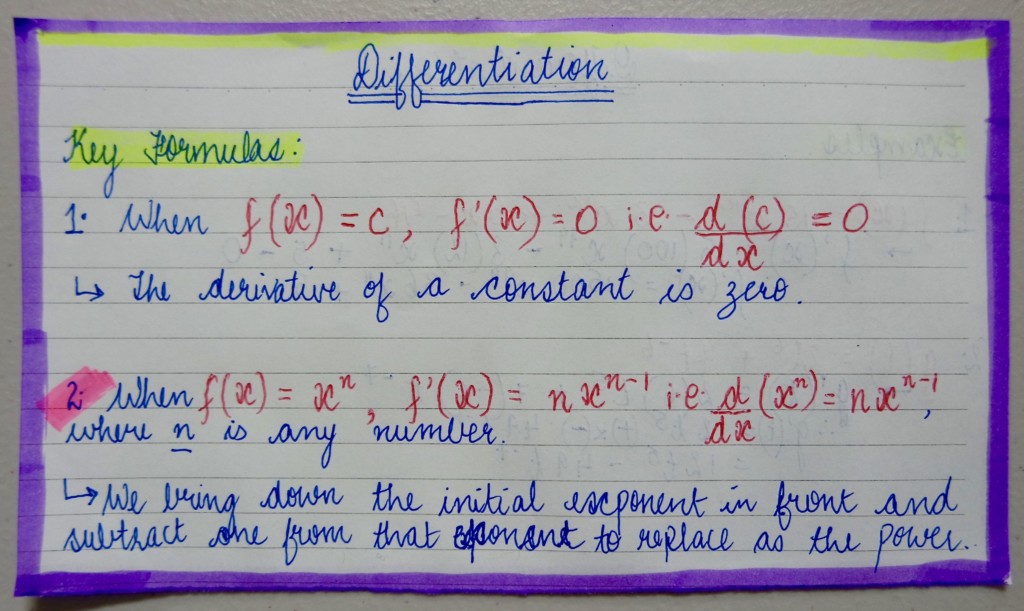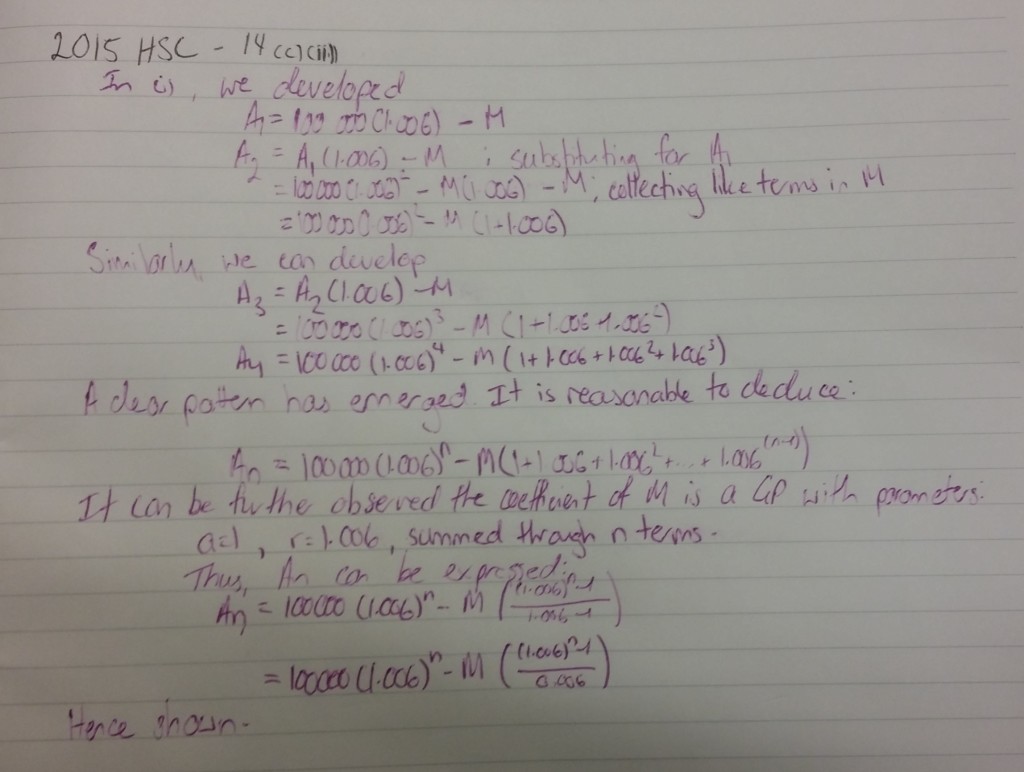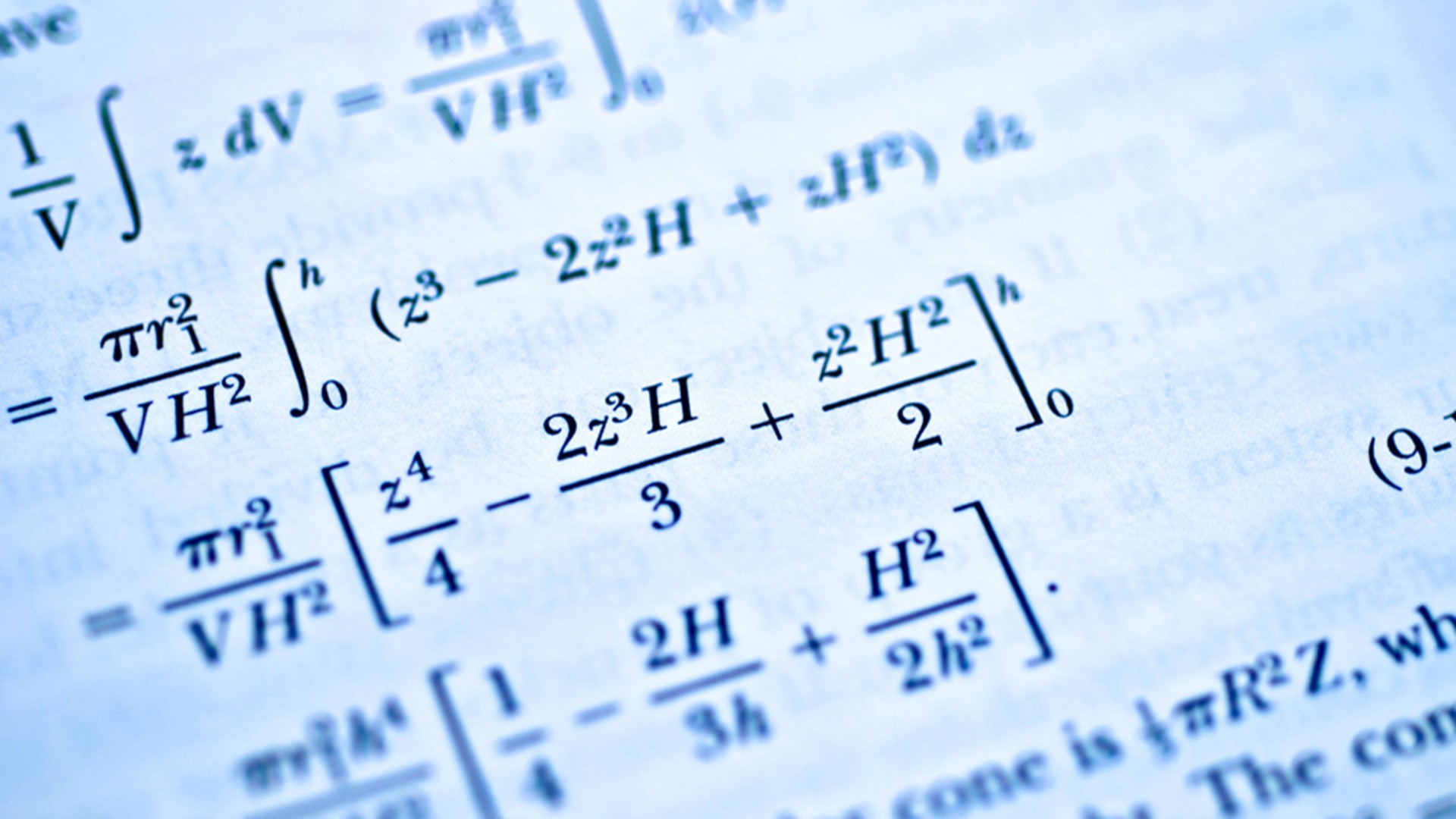Studying for HSC Advanced or Standard Maths can be challenging — with writing study notes, completing homework and doing practice papers, there’s a lot you need to fit in. Not sure where to even start?
Don’t worry, we’ve got you covered! We’ll be unpacking everything you need to know to prepare for HSC Maths and achieve that Band 6.
What are you waiting for? Let’s get started!
Part 1: Which level of HSC Maths should you be studying?
Part 2: Writing Your Study Notes
Part 3: How to Study for HSC Maths
Part 4: Preparing for your Exams with Practice Papers
Hint: Download this free guide below to getting a Band 6 if you want to follow along the best you can!
Part 1: Which level of HSC Maths should you be studying?
One of the first steps is to figure out whether you should study HSC Advanced or Standard Maths. While both Maths courses are equally difficult, they have different course content and you might find that you’re better suited for one than the other.
HSC Advanced Maths
The HSC Advanced Maths course is very calculus-focussed and is usually a prerequisite for university STEM courses.
Some of the topics studied include:
- Algebra: The branch of mathematics concerned with the study of symbols and the rules for manipulating those symbols to solve equations and study relationships between variables.
- Integration: A fundamental concept in calculus that deals with finding the total amount or accumulation of a quantity over a given interval. It is the reverse process of differentiation, and it is used to calculate the area under a curve, the total distance traveled, and other related quantities.
- Differentiation: A process in calculus that involves finding the rate of change or slope of a function at a particular point. It is used to find the maximum and minimum points on a curve, determine the concavity of a curve, and study other related properties of a function.
- Logarithmic and exponential functions: Mathematical functions that help to describe growth and decay in many real-world applications. Logarithmic functions are the inverse of exponential functions, and they are used to represent situations where the rate of change of a quantity is proportional to the current size of the quantity.
- Calculus: A branch of mathematics that deals with the study of rates of change and slopes of curves. It has two main branches: differentiation and integration, and it is widely used in physics, engineering, and economics to model and analyse real-world problems.
- Probability: The branch of mathematics that deals with the study of random events and their likelihood of occurrence. It is used to model and analyse uncertainty in real-world situations, such as predicting the weather, determining the outcomes of elections, and evaluating the risk of investments.
Did you know that between 2019 and 2020, 34% of students studying Advanced Maths dropped the subject? Learn why people drop out of advanced math so often!
HSC Standard Maths
While Standard Maths is still a challenging course, it focusses more on general maths such as finance, data and statistics, which can be applied in everyday life. If you’re considering a STEM degree at uni, Standard Maths probably won’t be enough as a prerequisite.
Topics studied include:
- Financial mathematics: The application of mathematical concepts and methods to problems in finance. It involves using mathematical models and statistical techniques to analyse financial data, make predictions, and make informed decisions in areas such as investment, risk management, and insurance.
- Algebra: The branch of mathematics concerned with the study of symbols and the rules for manipulating those symbols to solve equations and study relationships between variables. In HSC Standard Maths, students typically learn about linear equations, quadratic equations, and polynomials.
- Data and statistics: Involve the collection, analysis, and interpretation of data. In HSC Standard Maths, students learn how to organise and display data using graphs and tables, and how to use measures of central tendency and variability to describe data sets. They also learn about probability and how it can be used to make predictions about real-world events.
- Probability: The branch of mathematics that deals with the study of random events and their likelihood of occurrence. In HSC Standard Maths, students learn about the basic concepts of probability, including independent and dependent events, and how to use probability to make predictions about real-world events.
So when you’re trying to decide which of the two Maths courses is the one for you, remember that it’s not about what’s more ‘difficult’!
Consider a range of factors including whether it’s a prerequisite for your uni degree, which type of maths is your strong suit, and how you’re currently performing in Maths. Because it’s all about your strengths and weaknesses, check out our HSC Maths Tutors Sydney for targeted guidance to make sure you’re on track!
Still on the fence about which level of Maths you should be studying? Read the two articles below!
Should I Drop Down From Advanced Maths to Standard Maths?
Why You Shouldn’t Drop Down to Standard Maths
Part 2: Writing Your Study Notes
Now, writing study notes is a step that can seem quite challenging when it comes to HSC Maths but they’re super important!
Study notes are a great way to consolidate your understanding of what you’ve covered in class and it’ll also help you memorise all those pesky formulas!
Ideally, you should update your study notes once you finish a particular topic in class or at the end of every week or fortnight. Make sure you organise notes according to the syllabus so that it’s easy to find particular topics later on.
This is the HSC Advanced Maths Syllabus and here’s the HSC Standard Maths Syllabus.
For example, here’s what your Advanced Maths topics and subtopics would include:
How to Structure Your Notes
Under each heading, define the terminologies relevant to the topic and write out key formulas.
Make sure your formulas stand out with lots of colours, highlighters, or big fonts! These formulas are going to be the most helpful for you to understand how and why the concept works.
If you handwrite your notes, they might look like this:
Include a worked example in your notes so that you know what sort of questions could be asked when it comes to that particular topic and how you can answer them.
In your example, write out every little step and include an explanation behind each step. This can feel tedious and time consuming but it’ll help you understand the topic really well and come in handy when you revisit your notes!
It can look a little something like this:
Once you’ve updated your study notes for the topic, make sure you revisit them throughout the year and edit them based on what you’ve learnt.
Looking for more detailed tips on creating study notes? Check out these articles or reach out to our expert Parramatta Maths Tutors for tailored 1-1 support!
How to Write Effective Study Notes for HSC Advanced Mathematics
6 Steps To Writing Awesome HSC Standard Maths Study Notes
Part 3: How to Study for HSC Maths
Study notes are a big part of your Maths study, but what else can you do to consolidate your learning and achieve that Band 6?
Step #1: Complete Your Homework
Homework exercises are one of the most important things when it comes to studying for HSC Maths.
The work that has been assigned to you by your teacher should be your biggest priority during the week. Try to stay on top of your homework and answer as many questions as you can to avoid falling behind!
Looking for a Maths tutor in Sydney to help you prepare for your Maths assessments? Check out the Top Rated Art of Smart Maths tutors!
When you’re working through textbook exercises, be selective about the questions you complete — it’s about understanding the topic, not about how many questions you answer or how many hours you spend answering them!
If you feel like you’ve mastered one topic, move on to more challenging exercises! But make sure you revisit those questions throughout the year because mastering Maths requires regular practice.
Wondering about how much study you should be doing? We’ve got you covered! Read more about the right amount of HSC Maths study below:
How Much Study Should You Be Doing?
Step #2: Use Different Textbooks, Not Just the One Prescribed to You
We know that just one textbook can feel like it’s too much sometimes! But a lot of students make the mistake of only answering questions from that one prescribed book.
Instead, working through some practice questions out of different textbooks is super useful! It’ll expose you to different styles of questions so that you’re familiar with all the multiple ways a question could be asked in an exam.
Teachers often use different textbooks when they’re writing your internal Maths exams, so answering questions from non-prescribed textbooks can also help you score extra marks in your assessments!
Check out some other common mistakes students make when studying for HSC Maths!
Step #3: Learn from Your Mistakes
When you’re studying for Maths, it can be tempting to just go through the textbook questions, check the answers to see how many you got wrong, and then move on. But it’s super important to revisit those wrong questions and learn from your mistakes!
Keep track of the questions you get wrong and make note of the syllabus areas you’re feeling least confident about. One way you can do this is by making a checklist to figure out what you know and what you need to revise.
During your Maths study, take a look at this checklist and answer some questions that you originally got wrong. If you get them right now and feel like you’ve mastered the topic, tick it off your checklist and have a well-earned study break before jumping to the next one!
Step #4: Carry a Mistake Book
This step works hand in hand with the step above! But what is a mistake book?
A mistake book is basically a book where you log any mistakes that you make when working out a question! What makes it useful is that you identify where you’ve gone wrong.
Go through your working step by step and indicate where the error is, so whenever you encounter a similar question, you’ll be able to avoid making that mistake again!
Once you understand what went wrong with your initial approach, complete 2 questions below it following the correct steps so that you have worked examples to refer to.
Looking for in-person support to help you review your Maths mistakes? Our Hills District tutors are here to help!
Part 4: Practice papers, practice papers, practice papers!
Completing practice papers is probably one of the most important steps that will help you achieve that Band 6!
How to Effectively Study Using Practice Papers
While you’re still learning the content, pick a few past papers and answer the questions related to topics you’ve already covered. This is also a great way to keep revising old content and solidify your understanding!
It’s so important to be studying by topic rather than trying to complete an entire paper, because there are some focus areas you wouldn’t have gotten to just yet.
Studying by topic also allows you to recognise the types of questions that are typically asked for a certain topic. It can be useful to label a past paper’s questions with the topics covered, because you may notice a pattern in the way past papers are written!
Approaching Exam Periods
As you start to study for Trials and finish off learning new content, do as many Trial papers and HSC past papers as possible. You can ask your teachers for school-based Trial papers and check out our master list of HSC Maths past papers!
At this stage, try to complete practice papers under timed conditions and if you really want to improve your time management, you can even give yourself 10% less time! This way you’ll feel comfortable working under the time pressure and once you add on the 10% time during actual exams, you’ll feel like you have a little extra time under your belt.
Don’t forget to mark your answers! After completing a practice paper, go through it and find all those silly mistakes, topics you didn’t know, and questions you got wrong.
If you’re getting less than 70%, you might want to go back to your study notes and do some textbook questions to strengthen your understanding of your weaker topics.
Studying for HSC Maths, even right up to those final 7 days before your HSC, will mostly just be a circular process of revising your study notes, completing practice questions, and putting it all together with practice exams.
Want to read more about how to study during that final stretch? Check out the ultimate 7 day study plan for HSC Standard Maths and HSC Advanced Maths!
So there you have it!
We’ve unpacked some study tips to help you prep for HSC Maths. Follow this guide and you’ll ace your Maths exams to get that Band 6! Good Luck!
If you’re on the hunt for other Band 6 guides, check out the ones we’ve made for the following subjects:
- HSC Ancient History
- HSC Modern History
- HSC Biology
- HSC Chemistry
- HSC Physics
- HSC Economics
- HSC Business Studies
- HSC Legal Studies
- HSC Advanced English
- HSC Standard English
- HSC Visual Arts
Are you looking for some extra help with HSC Maths?
We have an incredible team of HSC tutors and mentors!
We can help you master the HSC Maths syllabus and ace your upcoming assessments with personalised lessons conducted one-on-one in your home or at one of our state of the art campuses in Hornsby or the Hills!
Personalised 1 on 1 Maths tutoring in Castle Hill or engaging Maths tutoring in Kellyville will help you ace the HSC!
We offer specialised one-on-one HSC Maths tutoring in Blacktown!
We’ve supported over 8,000 students over the last 11 years, and on average our students score mark improvements of over 20%!
To find out more and get started with an inspirational HSC tutor and mentor, get in touch today or give us a ring on 1300 267 888!
Maitreyi Kulkarni is a Content Writer at Art of Smart Education and is currently studying a Bachelor of Media and Communications (Public Relations and Social Media) at Macquarie University. She loves writing just about anything from articles to poetry, and has also had one of her articles published with the ABC. When she’s not writing up a storm, she can be found reading, bingeing sitcoms, or playing the guitar.

